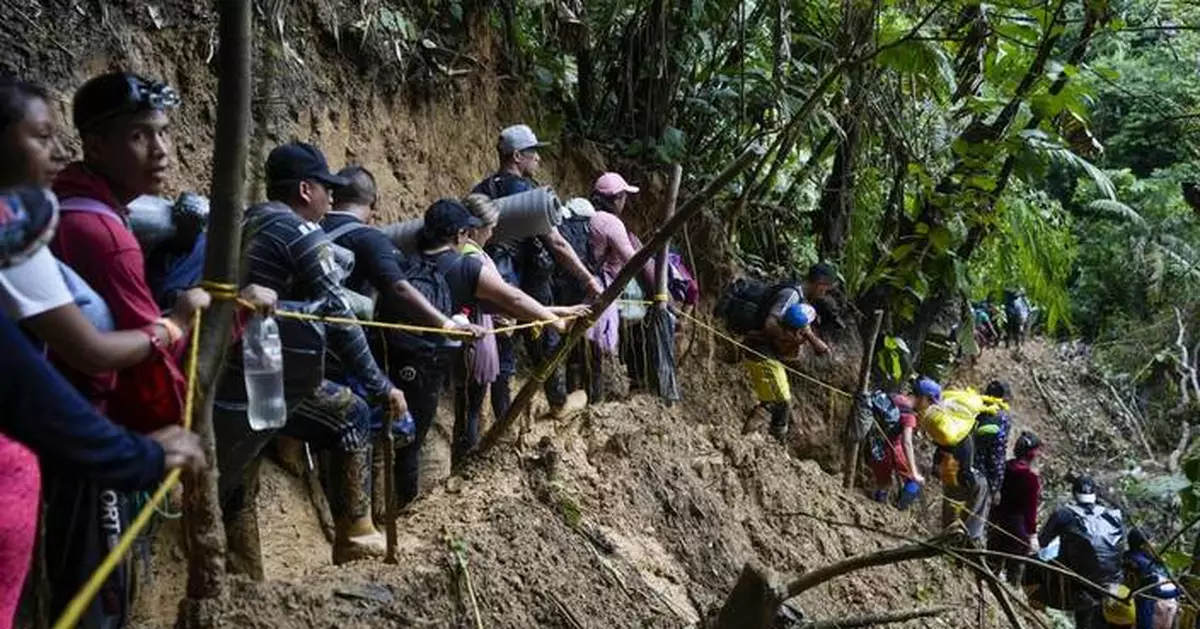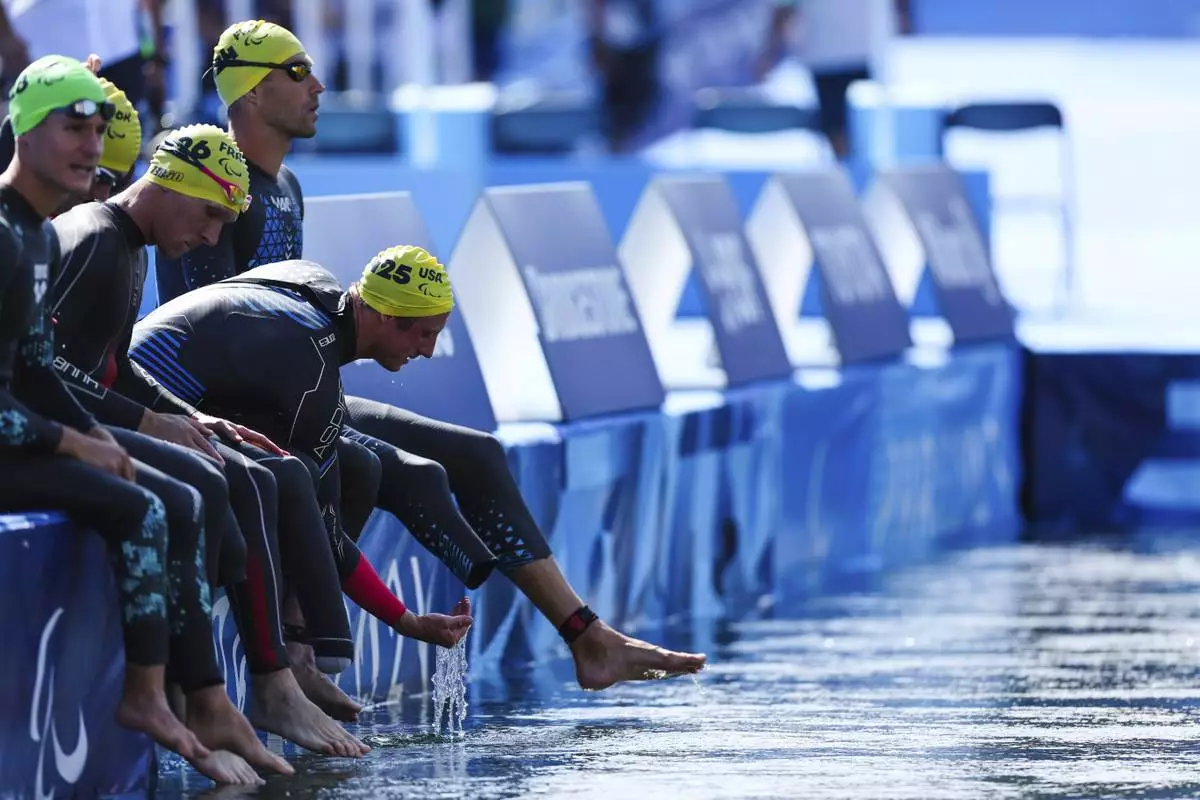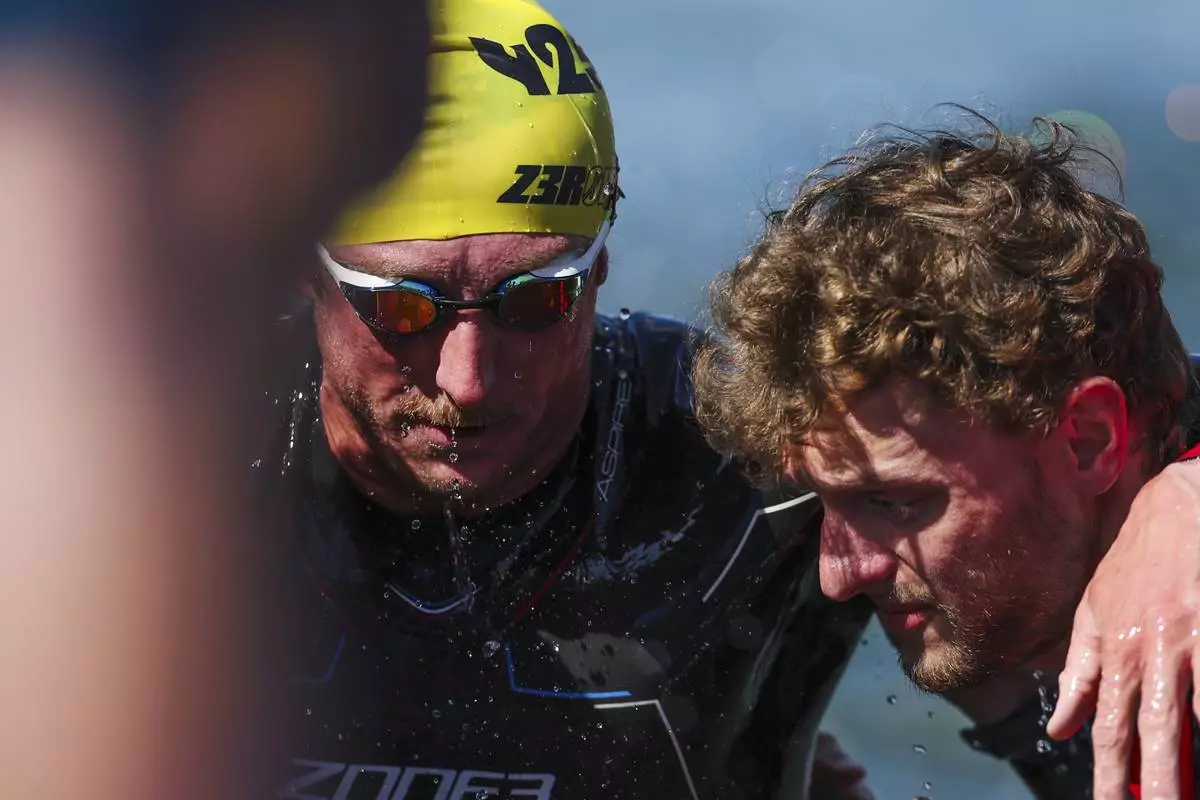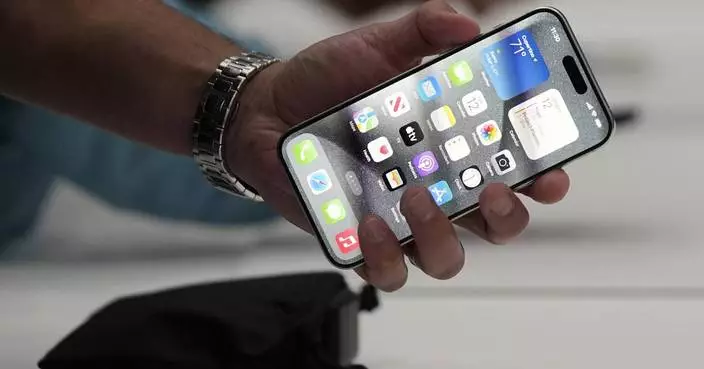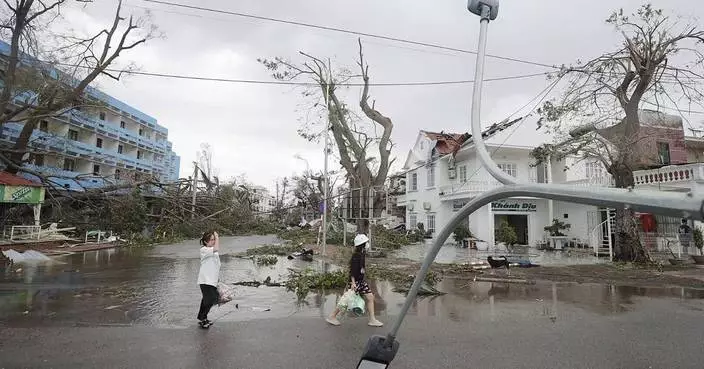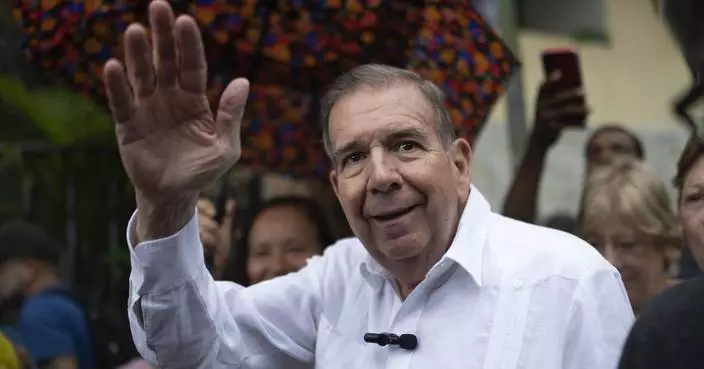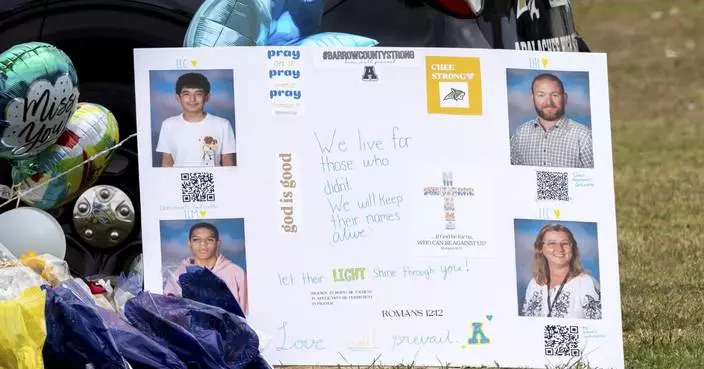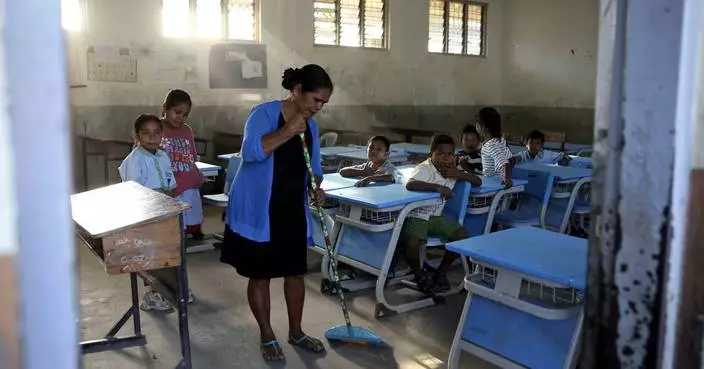The prolonged economic and political instability in Venezuela has forced millions of Venezuelans to leave over the past decade, quashing many of their dreams and leaving many wondering if they'll ever return to what was once South America's most prosperous country.
The refugee agency UNHCR estimates that more than 7.7 million Venezuelans have left since 2014, the largest exodus in Latin America’s recent history, with most settling in the Americas, from neighboring Colombia and Brazil to Argentina and Canada.
On Sunday, Venezuelans will vote in a highly anticipated presidential election that, for the first time in years, poses an electoral challenge for President Nicolás Maduro, who is seeking a third term. His top challenger is former diplomat Edmundo González, the candidate from the main faction of the opposition.
Here are the voices of some Venezuelans living abroad. Some have carved out new lives; some hope to return — someday.
Most Venezuelans who have left in the past decade have settled in Colombia, where the government has set up a program to grant them legal residency status and incorporate them into the formal economy.
María Auxiliadora Añez, 60, left her home in the once-thriving oil hub of Maracaibo in 2020 to visit her son, who was already living in Colombia’s capital, Bogota. Her Mexican food business had been struggling, and she had seen neighbors and friends migrate amid a constant lack of services and frequent blackouts.
Añez decided to stay in Colombia, where she and her husband manage a Venezuelan food truck.
She said she didn’t register to vote on Sunday because she found it difficult, but she thinks Venezuela needs more than an election to turn around. “It is not just about changing the president,” she said. “We need quality of life, access to basic and essential services such as water and electricity”.
Ana Isabel Gómez, 51, decided to emigrate in 2014 after feeling her safety and that of her family were at risk.
Gómez lived in the northwestern city of Barquisimeto, where she helped provide humanitarian aid to people during a period of protests against Maduro, who had been elected in 2013 after the death of former leader Hugo Chávez.
“My oldest son, for the third time, told me: ‘Mom, get me out,’ because they were murdering teenagers ... at that moment, above being a woman, I was a mother,” she said.
Gómez, her then-partner and her two children, ages 3 and 13 at the time, took a flight to Bogota, where she eventually settled down and now runs a wellness center and a nonprofit organization that sends medications to Venezuela.
She says she's optimistic about the future of Venezuela, and would like to return someday.
Emilia Lizbeth Angulo, a 51-year-old lawyer, left the northwestern city of Merida in 2018 after being harassed by pro-government officials. It was the year Maduro was reelected in an election that saw major opposition parties and candidates banned from participating.
Angulo was working in human resources at a hospital when she was asked to join pro-government demonstrations and refused. Then came the retaliation. The hospital stopped giving her heart medication that her mother needed. Eventually, her position was eliminated.
Angulo said leaving Venezuela at first sank her into depression. She and a friend left for Colombia, where she spent six months selling coffee and arepas before moving to Chile, where she settled down and works as an administrative assistant.
“Yes, I really want to return, but I’m waiting for the right moment to do so,” she said.
Liseth Díaz, a 46-year-old systems engineer, started thinking of migrating in 2015. “One day, leaving the movie theater with my daughters in the car, we found ourselves in the middle of a shooting,” she remembers.
Díaz and her family closed their contracting business and in December 2017 she, her husband and three daughters traveled from the central Venezuelan city of Guacara to Chile. After 14 days crossing through Colombia, Ecuador and Peru, they reached Santiago, the capital, where she now works in the fiber optic industry.
They haven't returned to Venezuela, and Díaz doesn’t think they will any time soon — at least not while what she calls the Maduro “dictatorship” remains in power.
She won't vote Sunday because she wasn't able to get a required passport despite various efforts.
In 2016, as he struggled to get by amid hyperinflation and widespread shortage, José Alberto Morán got mugged a couple of times.
Morán, who was studying and working in Caracas, decided to emigrate to Spain. He moved to Valencia, becoming the first member of his family to leave. Later, one brother moved to the Dominican Republic and another to Colombia.
His parents and other siblings remain in Venezuela, where he sends them money.
“What we do is help to support them all,” said Morán, 29, who works as a tile salesman in Madrid.
He won’t vote in Sunday’s election due to the “many hurdles” to register, but said he doesn’t expect major changes. Morán said he wouldn't go back permanently unless his country can offer him “security and stability," something he doesn't expect in the short term.
Jacobo Alonso Sequeiros left Venezuela in 2012, when Chávez was still president. Hoping for a better future, he headed for Europe, traveling first to the U.K. before finding a job as a computer engineer in Spain.
Born in Caracas, he grew up in Ciudad Guayana, in the southern state of Bolivar. He left behind his parents and sister, but after his mother’s death in 2016, his sister moved to Spain with him.
Like many other Venezuelans living abroad, Sequeiros won't vote in Sunday's election, because he found the process to register too bureaucratic. But he has hope that “there can be a great change on July 28.”.
Sequeiros, who now lives in Galicia, doesn’t see himself returning permanently. “Return to stay? No,” he said. “First, there would have to be circumstances, such as a job offer or economic stability for me to decide to leave everything I have achieved over the years in Spain and start my life again in Venezuela.”
Yuly Macedo, a 47-year-old lawyer who cleans houses in Miami, said that she has always opposed the government of Maduro. In April 2016, she took a plane with her husband and her then 10-year-old son to Miami, where she requested political asylum and has lived ever since.
Before leaving, Macedo worked for more than six years in different positions in the municipal office in Cagua, about 100 miles (60 kilometers) southwest of Caracas.
She said she was forced to attend pro-Maduro demonstrations and to recruit people to vote for him. She was warned not to talk about corruption and irregularities that she saw while working in the local government or else risk losing her job. She recalled receiving death threats and even being followed around.
It was “constant harassment and threats,” she said.
She was fired in 2014, but the threats continued, she said. At some point she thought: “I can’t continue with this fear,” and she finally left, leaving behind her parents and two brothers.
Venezuelans who like Macedo have no way of voting while in the United States because their country's embassy and consulates have been closed for years. But she hopes that this time there will be a change. “Hope and expectations will never be lost," she said.
Returning, however, is not in her plans — even if the opposition triumphs.
“I can’t go back to Venezuela, I feel very afraid, very afraid,” she added, explaining that those who threatened her still live there.
Mayra José Marchán arrived in South Florida with her husband and her two daughters almost a decade ago, but she has been helping to mobilize opposition voters back in Venezuela.
Marchán is looking for donors to help pay for transporting voters in Venezuela on election day, to buy food and drinks for voting center representatives, and even to pay phone bills of activists campaigning for the opposition.
“My slogan is: ‘If I can’t vote, I can help,'" said Marchán, a 52-year-old economist.
Marchán, a former university professor, said she was not affiliated with any political party, but she took part in anti-government demonstrations. She said she was threatened and that members of the military followed her in Araure, her hometown about 340 kilometers (210 miles) southwest of Caracas.
Marchán, her husband and her two daughters entered the U.S. with tourist visas and shortly after requested political asylum. They now have a company that dehydrates Venezuelan sweet chili.
She is confident that the Venezuelan opposition will come out “en masse” to vote Sunday. And although she fears Maduro’s government will do whatever it can to stay in power, she has hope.
“I dream of a different Venezuela; I work for a different nation, we have to keep working to make it happen,” she said.
Follow AP’s global migration coverage at: https://apnews.com/hub/migration
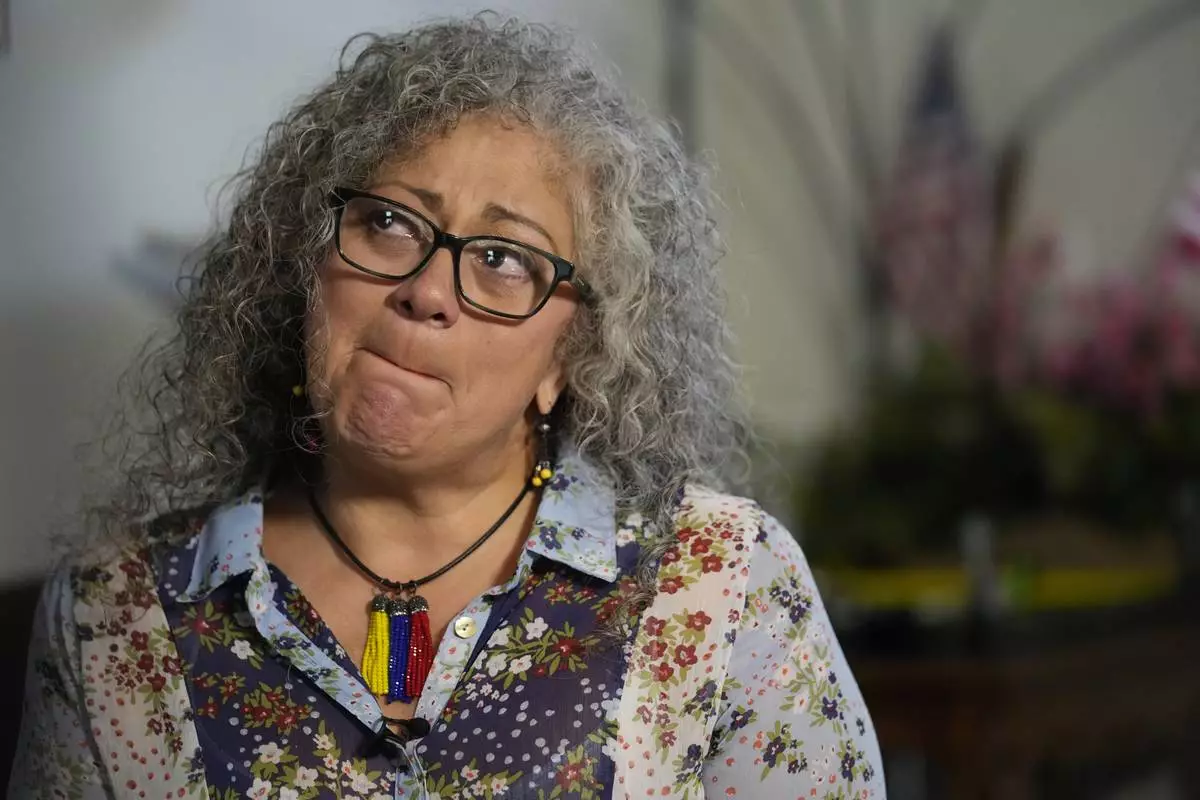
Tears well up as Mayra José Marchán, a former university professor in Venezuela, gives an interview at her home in Pembroke Pines, Florida, Thursday, July 11, 2024. Marchán arrived in South Florida with her husband and her two daughters almost a decade ago. She won't be able to vote on Sunday either, but she has been helping to mobilize opposition voters back in Venezuela. (AP Photo/Wilfredo Lee)
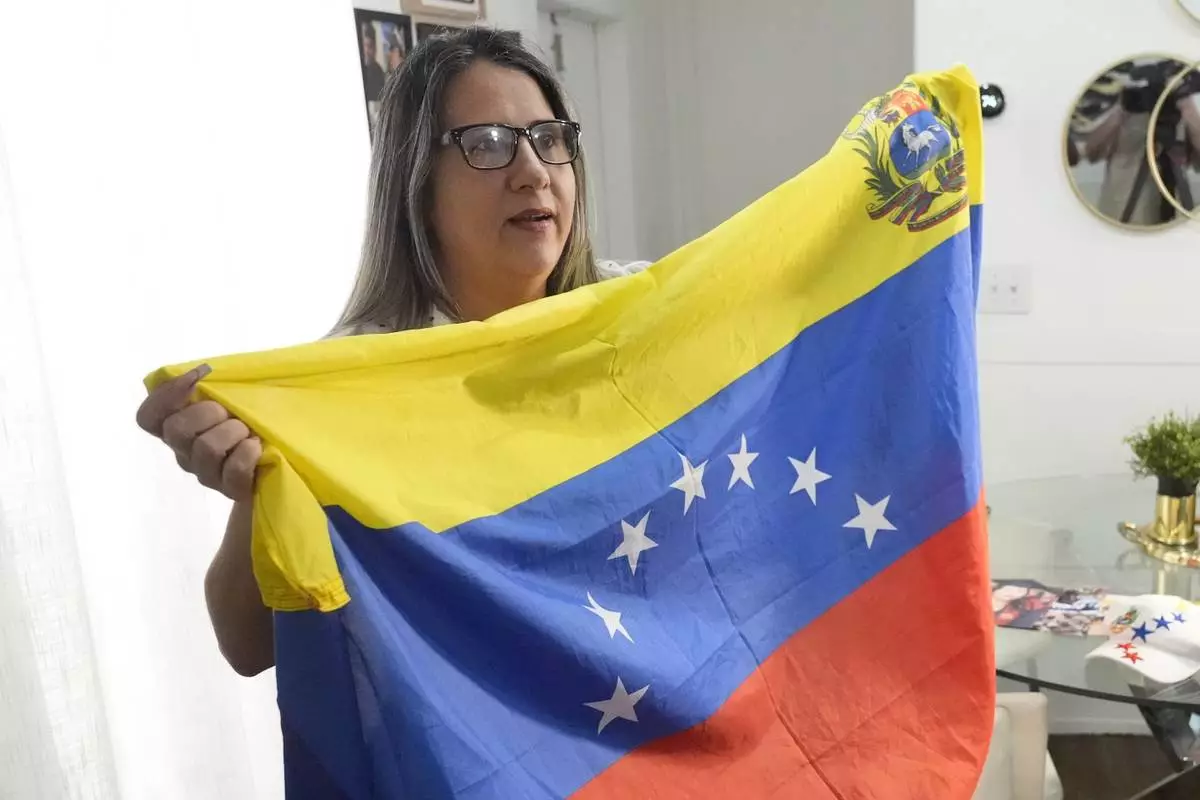
Yuly Macedo holds up a traditional seven-star Venezuelan flag that her son hangs in his room, different from the current eight-star flag that came to be under Hugo Chávez, during an interview in Davie, Florida, Thursday, July 11, 2024. Macedo, who now cleans houses in Miami, said that she has always opposed the government of Nicolas Maduro. In April 2016, she took a plane with her husband and her then 10-year-old son to Miami, where she requested political asylum and has lived ever since. (AP Photo/Wilfredo Lee)
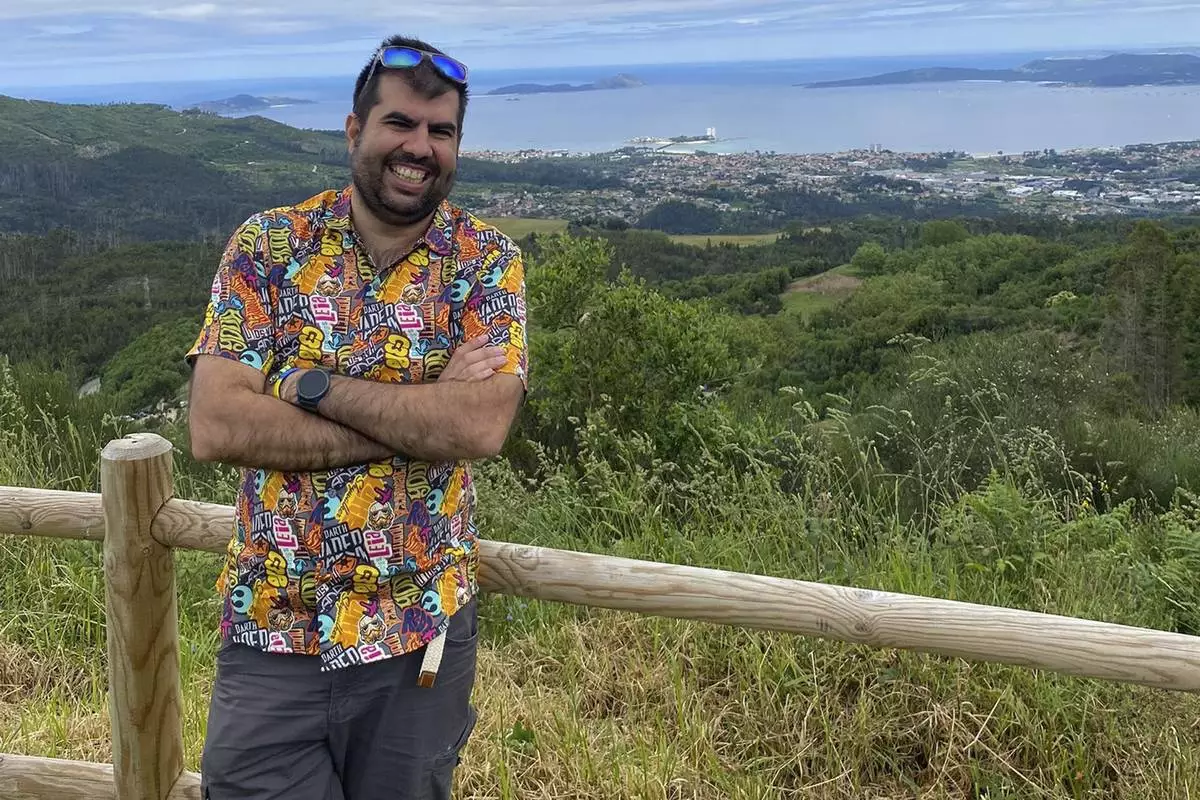
Venezuelan Jacobo Alonso Sequeiros poses for a photo in Vigo, northern Spain, Sunday, June 9, 2024. Sequeiros left Venezuela in 2012, when Chávez was still president. Hoping for a better future, he headed for Europe, traveling first to the U.K. before finding a job as a computer engineer in Spain. (Courtesy photo Jacobo Alonso Sequeiros via AP)
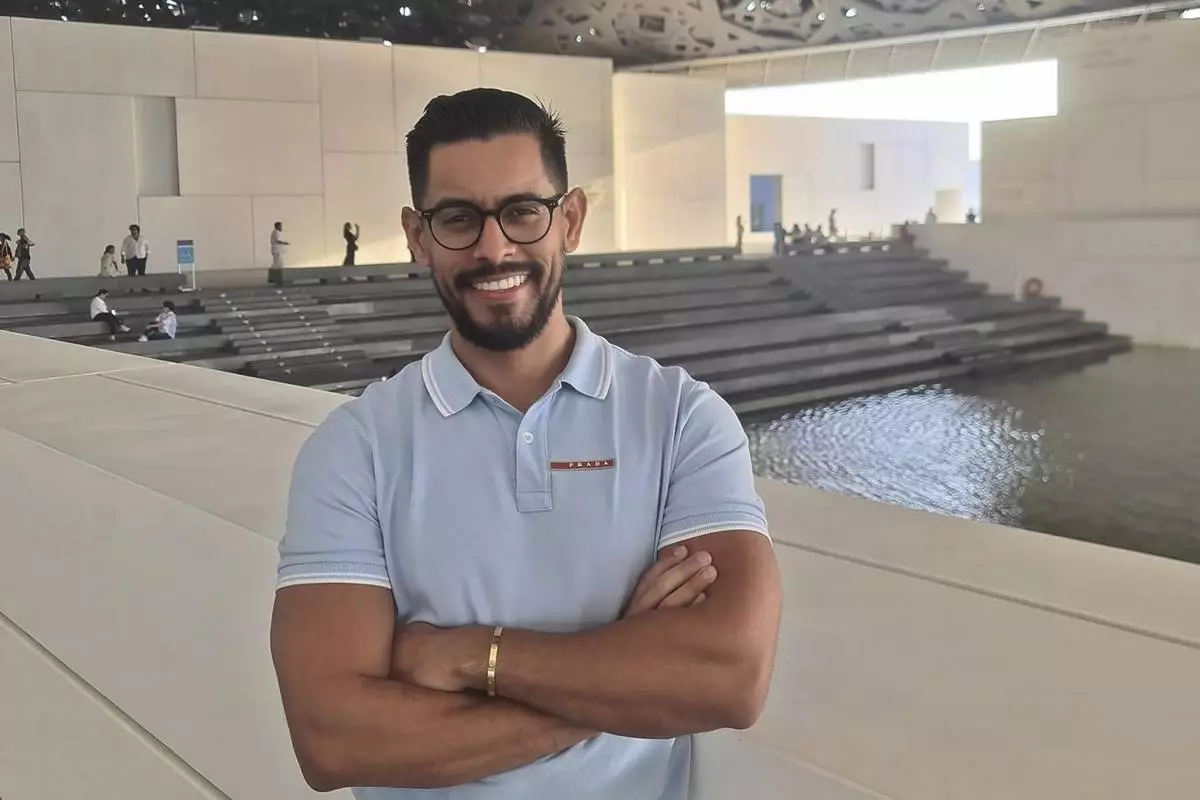
Venezuelan José Alberto Morán poses for a photo during a visit to Louvre Museum in Abu Dhabi, United Arab Emirates, in December 2022. Morán, who was studying and working in Caracas, moved to Valencia in 2016, becoming the first member of his family to leave. (Courtesy of Jose Moran Dorante via AP)
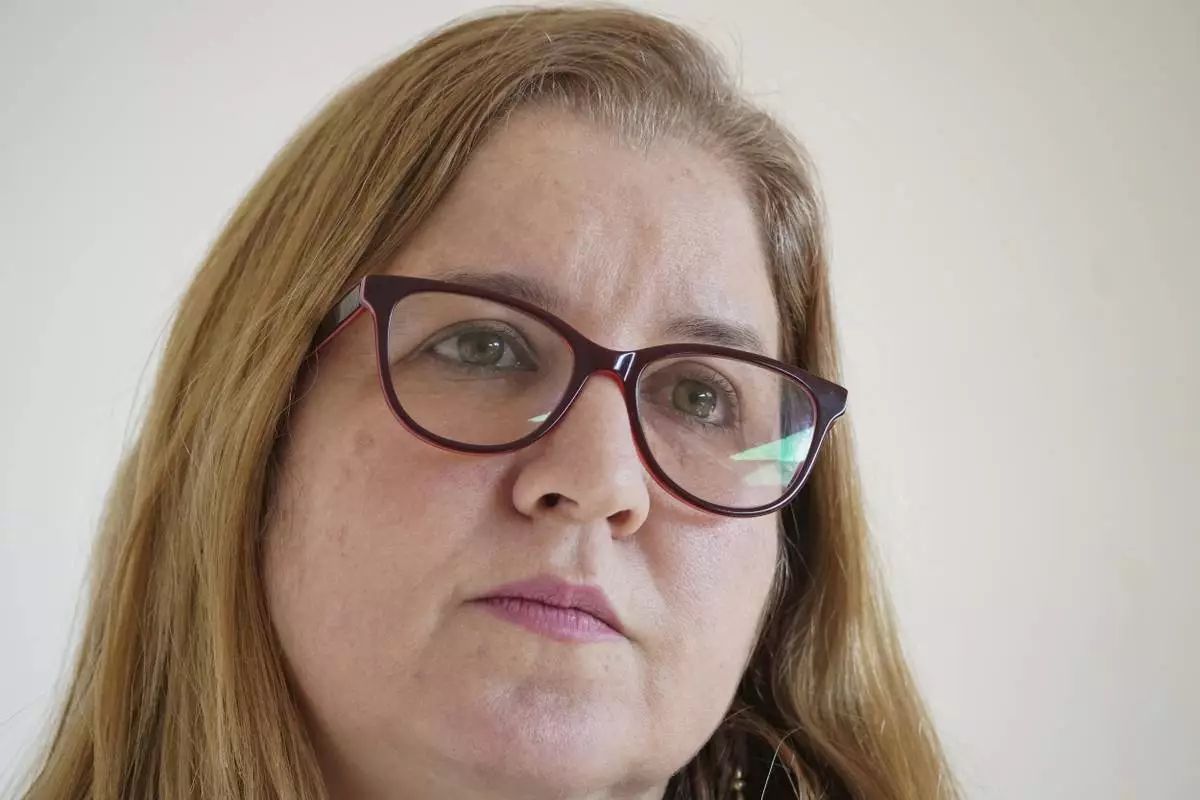
Venezuelan Liseth Díaz gives an interview at her work place in Santiago, Chile, Thursday, July 11, 2024. Díaz and her family, who ran a contractor company in Guacara, ended up closing it and in December 2017 she, her husband and three daughters crossed through Colombia, Ecuador and Peru, until they reached Santiago, where she now works in the fiber optic industry. (AP Photo/Matias Basualdo)
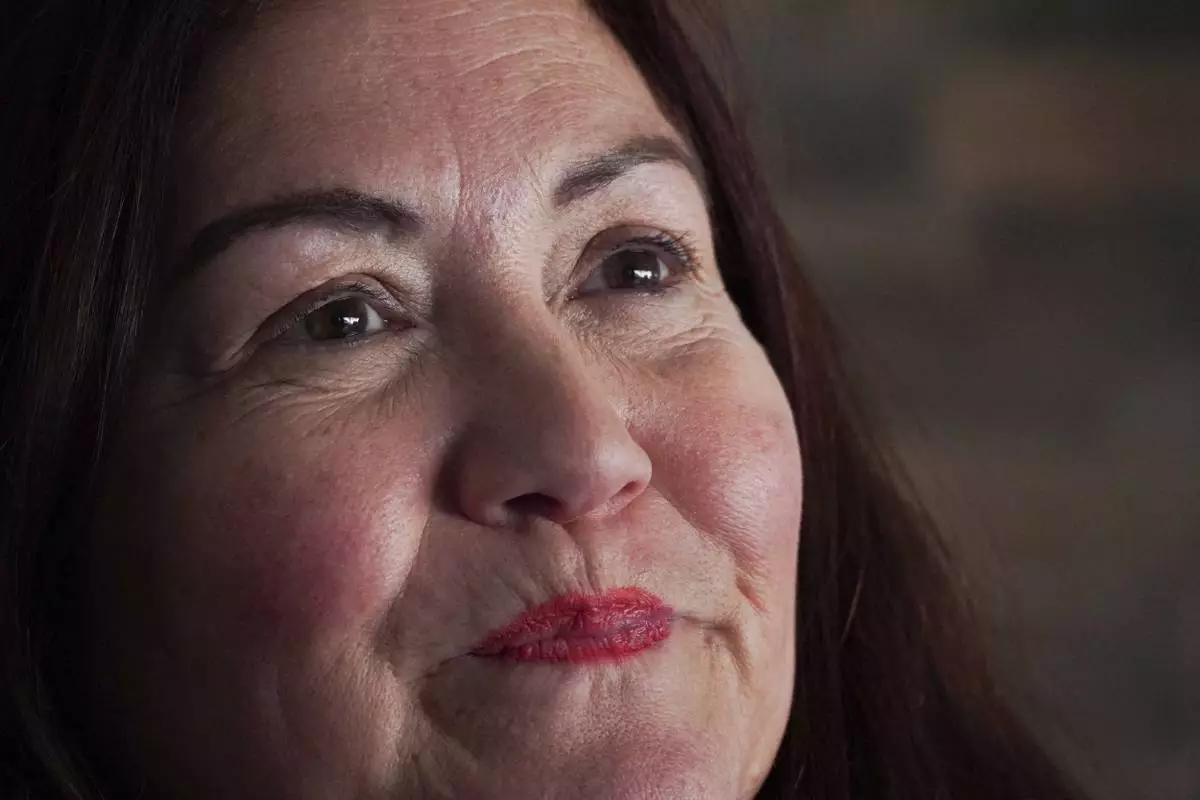
Venezuelan Emilia Lizbeth Angulo gives an interview at her work place in Santiago, Chile, Thursday, July 11, 2024. Angulo and a friend left for Bogota in 2018, where she spent six months selling coffee and arepas before moving to Chile, where she settled down and currently works as an administrative assistant. (AP Photo/Matias Basualdo)
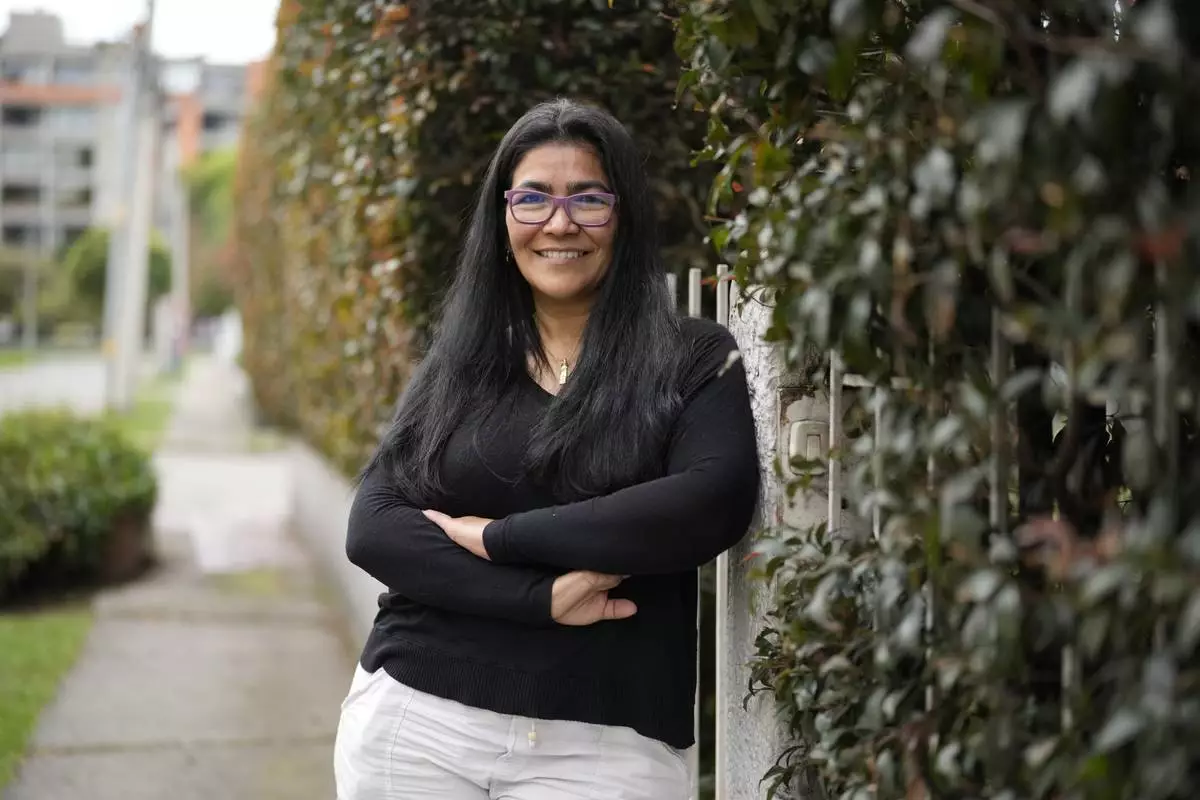
Venezuelan migrant Ana Isabel Gómez poses for a portrait in Bogota, Colombia, Wednesday, July 17, 2024. Gómez says she decided to emigrate in 2014 after feeling her safety and that of her family were at risk. (AP Photo/Fernando Vergara)
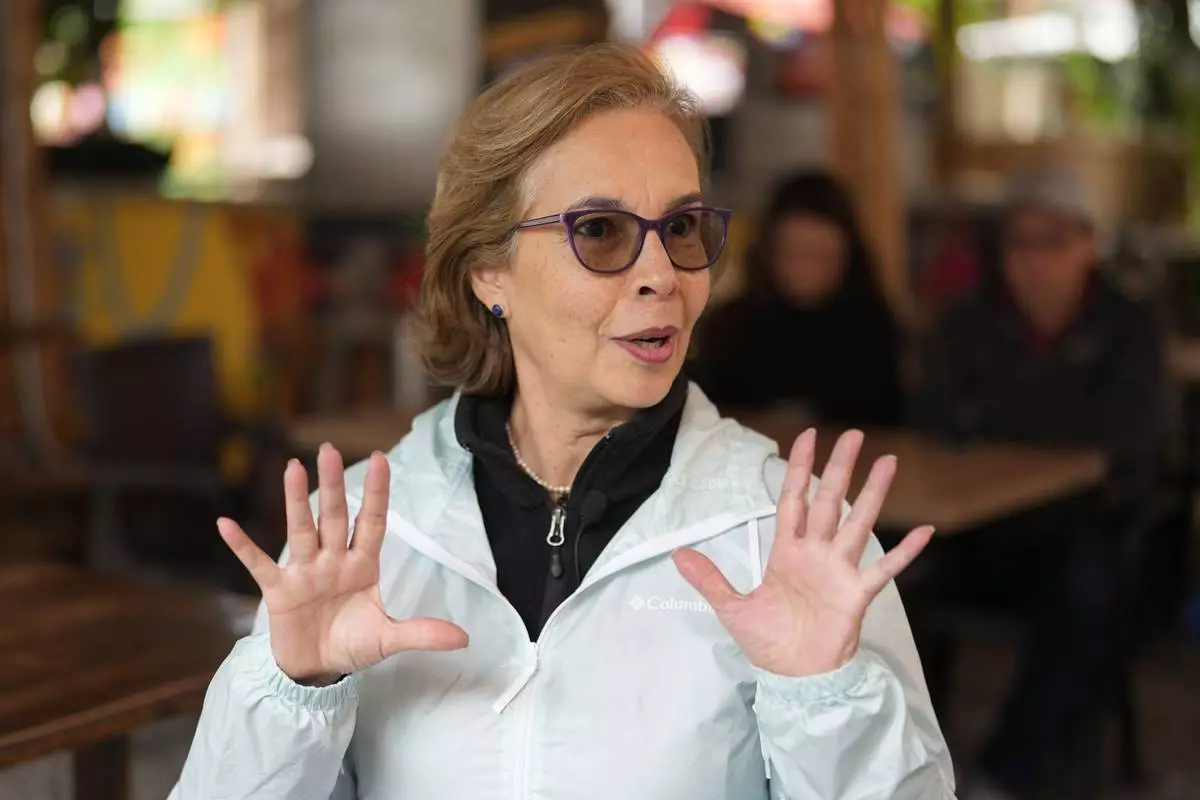
Venezuela migrant Maria Auxiliadora Añez speaks during an interview in Bogota, Colombia, Wednesday, July 17, 2024. Añez currently lives in Bogota where she and her husband manage a food truck selling Venezuelan food. (AP Photo/Fernando Vergara)
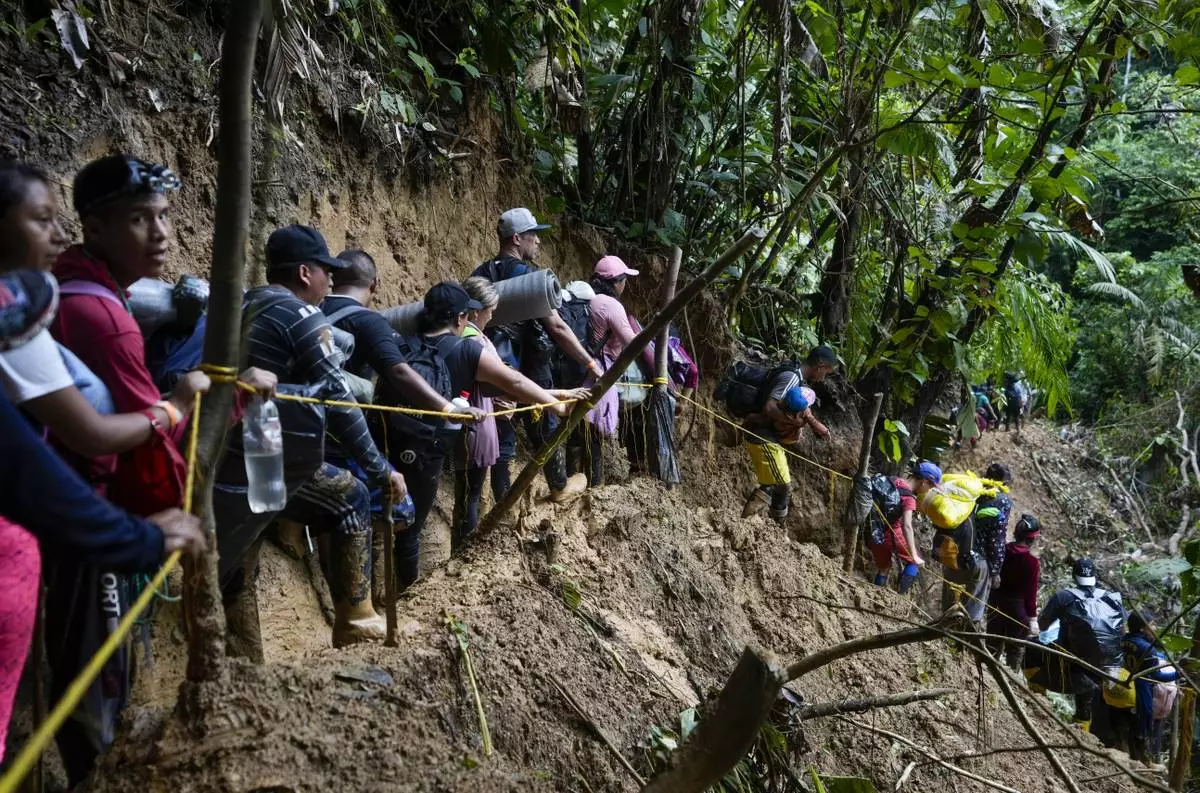
FILE - Migrants, mostly Venezuelans, walk across the Darien Gap from Colombia into Panama, hoping to reach the U.S., Oct. 15, 2022. Refugee agency UNHCR estimates more than 7.7 million Venezuelans have left since 2014, the largest exodus in Latin America’s recent history, with most settling in the Americas, from neighboring Colombia and Brazil to Argentina and Canada. (AP Photo/Fernando Vergara, File)


